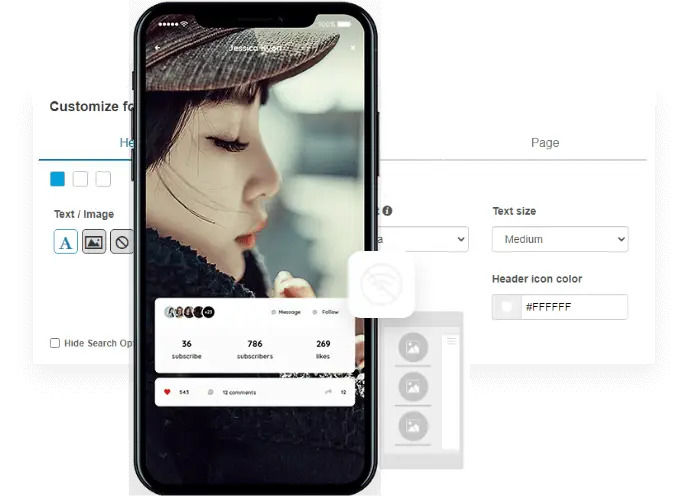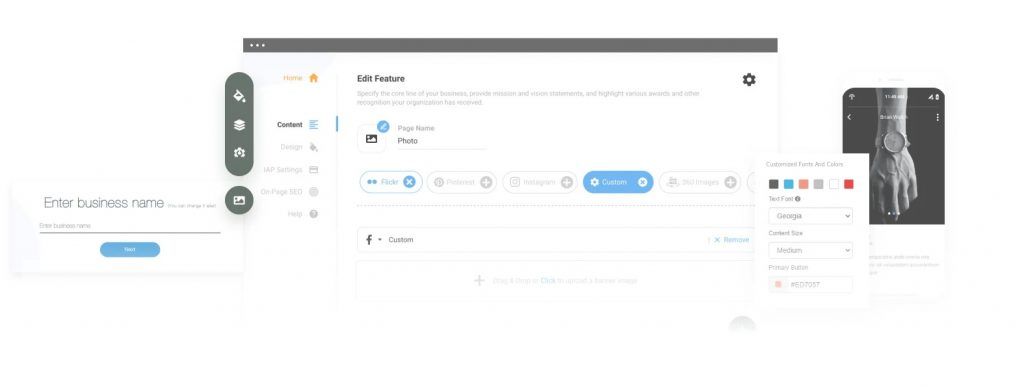When it comes to low-code / no-code, it seems that the category has become popular within the last couple of years only. However, that’s not the case as many software and services have been enabling people to build things themselves without having any technical background. One such product is Appy Pie, which makes it extremely easy to make mobile apps, and was started almost a decade ago in 2012. We got a chance to talk to its founder Abhinav Girdhar about the company’s evolution over the years, the learnings of building a global product from India, and more.
PS: The interview has been edited for the sake of brevity.

Table of Contents
1) Before we begin talking about Appy Pie, can you share your journey into the world of SaaS?
Before Appy Pie, I was running a new media firm specializing in Website Design and Development as well as SEO and SEM. At that time, we started getting inquiries of mobile apps on very tight budgets, so we started researching for a CMS like WordPress for mobile apps. However, we were unable to find anything, and that’s when we decided to develop our own CMS.
Most of the leadership team transitioned from the new media service business to a product business for the mobile app. Today we have over 220+ team members working on the various Appy Pie products.
2) What gaps did you see in the market that led you to launch Appy Pie?
I have always been intrigued by technology, and I understand the edge technology can lend to a business of any scale or size. When I saw some of the most brilliant ideas not seeing the light of the day, solely due to the lack of access to technology, I knew that I could use my knowledge to fill this void. That’s when I conceptualized Appy Pie as a platform that would democratize technology and make it accessible and affordable for all. The idea was to let the businesses skip the hassles of coding to get tools that would empower their businesses.
3) Could you tell us about how Appy Pie has evolved since its launch in 2012?
Since its launch in 2012, Appy Pie has continued to expand its product portfolio. After the flagship product – Appy Pie AppMakr – received incredible popularity, we have launched an entire bouquet of no-code business solutions. Some of our most well-received products include:
- Appy Pie Connect
- Appy Pie Chatbot
- Appy Pie Design
- Appy Pie Livechat
Another area that we have found encouraging results in is the world of enterprise. Appy Pie Plus, our enterprise solutions platform was launched recently and has been received with enthusiasm among the target audience.
4) Could you share how many customers do you have now? And what kind of industries are using Appy Pie the most?
Appy Pie’s AppMakr alone has more than seven million customers today. The three top industries that Appy Pie caters to include – online stores, restaurants, education.
5) While Appy Pie may be a pioneer in the space, today there are a lot of no-code / low-code tools, how does Appy Pie stand out amidst the competition?
There is not one but many crucial ways in which we stand apart from the rest of the competition. We offer the most competitive pricing in the segment, and one does not need to run from pillar to post for multiple business solutions. They can get all they want on our platform by following simple DIY steps. We believe in giving all an intuitive experience, which means around-the-clock assistance from start to finish. We further help the businesses with app submission to app stores from the onset to the final step, which is a standalone service in the market. There is also a provision in place to provide real-time updates on the app developed.

Appy Pie provides scalable business solutions that aim at levelling the playfield for small businesses, startups, and entrepreneurs. Even those with strict timelines and limited budgets can access cutting-edge technology without spending a fortune. One can simply log in and start developing websites, designs, chatbots, and other automation solutions.
Another factor that sets us apart from our competitors is that Appy Pie offers comprehensive no-code solutions in multiple languages, empowering the businesses to defy geographical boundaries and expand their ambit. With Appy Pie, a business can have a 360-degree digital footprint in the market.
6) Could you shed a light on Appy Pie’s marketing strategy?
We are focusing primarily on digital channels where 95 percent of our traffic is organic, and we also spend some marketing dollars on Google and Facebook ads. Over the last year, we have been experimenting with TV advertising as well.
7) How has the ongoing pandemic affected Appy Pie – both in terms of businesses and no of users?
As the pandemic has confined our movement, no-code development has emerged as the perfect solution for most businesses with a small budget. Businesses that did not have digitization on the cards had no choice but to look for suitable digital solutions. No-code development ticks all the critical boxes – low cost, low complexity, and high-speed solutions.
In fact, our total paid app subscriptions saw a meteoric rise of 586 percent as the pandemic broke out in the second quarter of 2020.
8) Can you talk about your experience of building a global product out of India?
As an IT-based company, there are no global boundaries. All that we need to focus on is the target audience and their needs. Another important aspect that we pay due attention to is making the platform multilingual. The platform currently serves Spanish, German, Portuguese, French, Arabic, Italian, and Japanese languages. This has helped us in catering to the global audience better.
9) What’s next for Appy Pie? Any new features that you’re working on?
We have aggressive plans to expand geographically into Japan, DACH, and LATAM regions. Hence, we will be investing a substantial amount in product localization and local support. We also intend to do strategic tie-ups with trailblazing startups who have built rapidly growing businesses that have clearly defined competitive advantages.

Appy Pie launches new features for the app builder platform quite frequently. However, Appy Pie Academy and Appy Pie Plus – our Enterprise platforms – are two new verticals we are currently focusing on.
10) What are your favorite SaaS products out there?
There are several software out there, but my favorites would be Google Workspace and Slack. I’ve also developed a liking for Microsoft Teams for easier collaboration between teams and colleagues.






